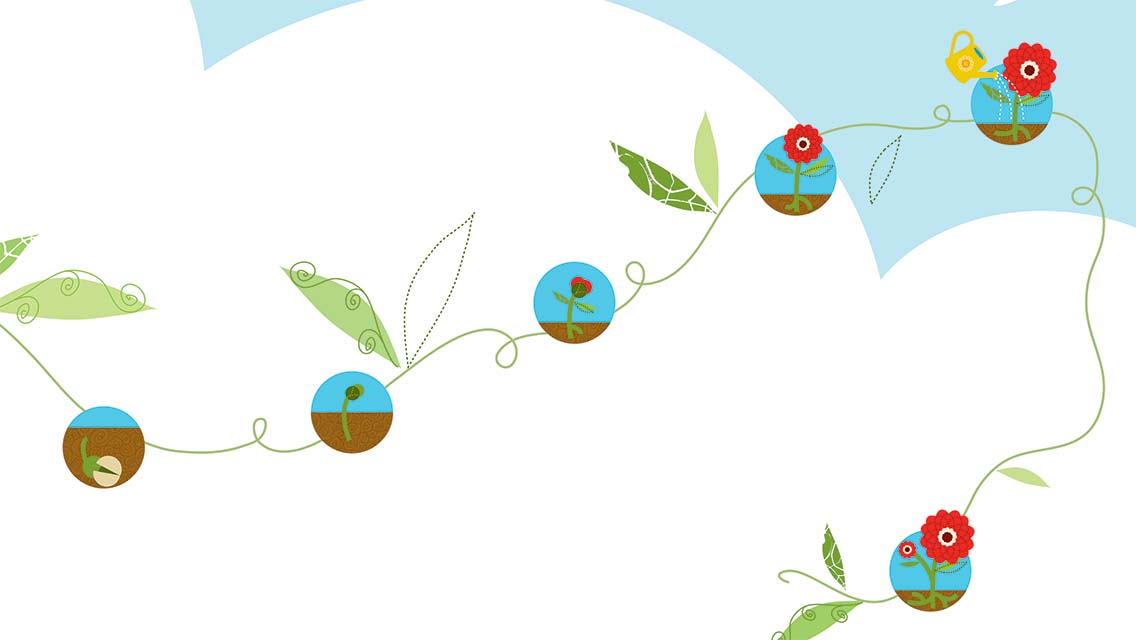As humans, we have come to understand the concept of change: Our world is always in motion, and our species is constantly transforming, too. While it’s an evolutionary process, we’ve also discovered we have the aptitude to affect our own lives.
How do we do this?
A “situational analysis” is a method of review that starts with taking the time to look at the environment we are in and asking a series of questions that help us navigate the realities we’re facing. It’s an essential first step to not only continually adapt, but to also improve.
The speed of change is the first important factor. When a situation is static or slower moving, it affords us the time to understand what is happening, as well as what’s working and what’s not. We can reflect on what’s helped in the past, and perhaps experiment as we explore alternate paths to uncover better solutions.
Sometimes change is so slow it’s hardly noticeable, like the moon as it moves farther from Earth, just an inch or so per year. It doesn’t look or feel like much, but over time, the effect will be drastic as it shifts not just the tides and climate on our planet, but eventually the moon’s place in the universe.
If a situation is dynamic, it means things are changing rapidly or perhaps unexpectedly. With little time to reflect, we’re pressured to assess quickly and pivot nimbly. We have to anticipate where this change is taking us in order to map out a trajectory that allows us to move forward in a positive direction.
If the change that’s happening is dynamic, the next question is whether it’s linear or exponential. This can be tricky, because our brains have evolved to process change linearly.
Imagine, for instance, what happens when an eagle dives toward its prey: We can quite accurately predict when and where the catch is going to happen based on a progression of expected circumstances gathered from previous experience and knowledge.
Yet in this age of innovation, change has been anything but linear. The famous inventor, futurist, and author Ray Kurzweil puts it like this: “Thirty steps linearly gets you to 30. One, two, three, four, step 30 you’re at 30. With exponential growth, it’s one, two, four, eight. Step 30, you’re at a billion.”
The world we live in today is increasingly dynamic and exponential. Just consider the advancements in digital technology.
In recent decades, the speed of computation has doubled — and then doubled again and again. And every two months, it seems there’s another operating system or improved feature. It’s hard to keep up as machines do things faster than we can anticipate.
The industrial revolution was like molasses compared with the way things are changing right now. Just 40 years ago, I waited a month to get a letter from my brother on the other side of the world. Today, there’s immediate gratification: With the press of a button, you’re talking to anyone, anywhere.
The speed of change has accelerated to a point where it can be overwhelming. And that is the necessity of a situational analysis — we can prepare ourselves.
As the most resilient, creative, out-of-the-box-thinking species to ever walk on this planet, we, in the simplest of terms, figure things out. We adapt not just to survive, but also to thrive. And with history as a teacher, we have embraced the ability to look at change positively and say, “Wow! If this has happened in my lifetime, what might the next 20 years hold?” The doors for imaginative new thinking are open.
While I’m excited about this fast-moving future, I also recognize and appreciate that some of the things we hold most sacred move a little slower.
Courage and confidence, for instance, don’t always come naturally and can require space to develop. When they do, however, they’re well-earned and worth the lessons.
Nurturing relationships takes time and patience. Human psychology (and thus our emotional responses) isn’t changing rapidly — how lucky are we to be wired to love and care for others? I doubt that any machine could compute the exponential amount of joy that fills my heart each time I hear my daughters’ laughter.
In this dynamic, ever-changing world, the ability to slow down and take it all in is, in a way, its own gift. It’s a source of reflection that allows us to recognize our opportunity to adapt, transform, and shape the trajectory of our own lives.
That is the beautiful potential of a situational analysis.





This Post Has One Comment
Mr. Akradi,
I very much enjoy all your writings. After the terrible pandemic, this one hits the nail on the head. Your organization’s tactics during that period showed us exactly what you are writing about. You implemented the necessary procedures with the speed of lightning to ensure a quick return to (as close to normal as possible) daily operation of your facilities.
You spared no expense to create a safe and secure environment for your employees and guests.
You my friend are a person we all should look up to to guide us thru whatever adverse conditions we may face in the future.
I myself definitely want you to be a captain of my team!!!!